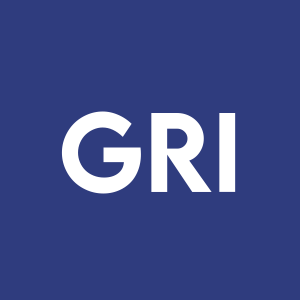GRI Bio Receives MHRA Authorization to Conduct Phase 2a Biomarker Study Evaluating GRI-0621 in the United Kingdom
MHRA authorization expands ongoing U.S. Phase 2a biomarker study evaluating lead program GRI-0621 for the treatment of Idiopathic Pulmonary Fibrosis (“IPF”) with interim data expected H1 2024 and topline data H2 2024
UK enrollment to be supported by collaboration with UK consortia, National Institute for Health and Care Research Respiratory Translational Research Collaboration (“NIHR Respiratory TRC”)
LA JOLLA, CA, March 04, 2024 (GLOBE NEWSWIRE) -- GRI Bio, Inc. (NASDAQ: GRI) (“GRI Bio” or the “Company”), a biotechnology company advancing an innovative pipeline of Natural Killer T (“NKT”) cell modulators for the treatment of inflammatory, fibrotic and autoimmune diseases, today announced the authorization of its Clinical Trial Application (CTA) by the United Kingdom Medicines and Healthcare products Regulatory Agency (MHRA) to initiate a Phase 2a biomarker study evaluating GRI-0621 for the treatment of IPF in the UK.
The MHRA is the UK regulatory authority, a government agency, for medicines and medical devices. The MHRA is responsible for the regulation of medicines and medical devices and equipment used in healthcare and the investigation of harmful incidents.
“We are pleased to receive authorization from the MHRA and take a step in the global expansion of our clinical development for GRI-0621. We continue to make encouraging progress in the U.S. with our Phase 2a study and believe the approval for this expansion into the UK underscores the global significant unmet need for an IPF treatment option that interrupts disease progressing and restores homeostasis in the immune system earlier in the inflammatory cascade. We are focused on driving this program forward and generating important data readouts this year,” Marc Hertz, PhD, Chief Executive Officer of GRI Bio.
“This approval is an important step in the continuum of GRI-0621's clinical development plan and will help provide the foundation for the continued collaboration between GRI Bio and the NIHR Respiratory TRC with the ultimate goal of giving patients with IPF continued access to novel and potentially life-changing medications,” added Dr. Nikhil Hirani, Reader, Deanery of Clinical Sciences Centre for Inflammation Research Edinburgh Imaging.
IPF is a rare chronic progressive pulmonary disease with abnormal scarring of the lung blocking the movement of oxygen into the bloodstream. Currently available treatments for IPF are limited with only two approved drugs that come with significant side-effects, limited compliance and no impact on survival1.
The Phase 2a, randomized, double-blind, multi-center, placebo-controlled, parallel-design, 2-arm study will enroll approximately 36 subjects with IPF whom will be randomized in a 2:1 ratio for GRI-0621 4.5mg or a placebo. GRI-0621 dose of 4.5mg will be compared with a dose of placebo following once daily oral administration for 12 weeks. Concurrently, a sub-study will examine the number and activity of NKT cells in bronchoalveolar lavage (“BAL”) fluid for up to 12 eligible subjects (across various centers). An interim analysis will be performed when 24 subjects (of which approximately 8 will be placebo subjects) complete 6 weeks of treatment. The primary endpoint for the study is safety and tolerability of oral GRI-0621 as assessed by clinical labs, vital signs and adverse events after 12 weeks of treatment. Secondary endpoints are baseline changes in serum biomarkers collected at week 6 and week 12; an assessment of the pharmacokinetics (PK) of GRI-0621 at the week 12 visit of treatment (steady state); and a determination of the pharmacodynamic activity of oral GRI-0621 as measured by inhibition of iNKT cell activation in blood after 6 weeks and 12 weeks, and from BAL fluid after 12 weeks of treatment in a sub-study. An additional exploratory endpoint for the study is to assess the effect of GRI-0621 on pulmonary function at baseline and after 6 weeks and 12 weeks of treatment.
About GRI Bio, Inc.
GRI Bio is a clinical-stage biopharmaceutical company focused on fundamentally changing the way inflammatory, fibrotic and autoimmune diseases are treated. GRI Bio’s therapies are designed to target the activity of NKT cells, which are key regulators earlier in the inflammatory cascade, to interrupt disease progression and restore the immune system to homeostasis. NKT cells are innate-like T cells that share properties of both NK and T cells and are a functional link between the innate and adaptive immune responses. Type I invariant NKT (“iNKT”) cells play a critical role in propagating the injury, inflammatory response, and fibrosis observed in inflammatory and fibrotic indications. GRI Bio’s lead program, GRI-0621, is an inhibitor of iNKT cell activity and is being developed as a novel oral therapeutic for the treatment of idiopathic pulmonary fibrosis, a serious disease with significant unmet need. The Company is also developing a pipeline of novel type 2 NKT agonists for the treatment of systemic lupus erythematosus. Additionally, with a library of over 500 proprietary compounds, GRI Bio has the ability to fuel a growing pipeline.
Forward-Looking Statements
This press release contains “forward-looking statements” within the meaning of the “safe harbor” provisions of the Private Securities Litigation Reform Act of 1995. Forward-looking statements may be identified by the use of words such as “anticipate,” “believe,” “contemplate,” “could,” “estimate,” “expect,” “intend,” “seek,” “may,” “might,” “plan,” “potential,” “predict,” “project,” “target,” “aim,” “should,” “will,” “would,” or the negative of these words or other similar expressions. These forward-looking statements are based on the Company’s current beliefs and expectations. Forward-looking statements include, but are not limited to, statements regarding: the Company’s expectations with respect to development and commercialization of the Company’s product candidates, the timing of initiation or completion of clinical trials and availability of resulting data, the potential benefits and impact of the Company’s clinical trials and product candidates and any implication that the data or results observed in preclinical trials or earlier studies or trials will be indicative of results of later studies or clinical trials, the Company’s beliefs and expectations regarding and the potential of the Company’s product candidates to meet unmet treatment needs and improve patient quality of life and the Company’s beliefs about the timing and outcome of regulatory approvals and potential benefits of Orphan Drug Designation. Actual results may differ from the forward-looking statements expressed by the Company in this press release and consequently, you should not rely on these forward-looking statements as predictions of future events. These forward-looking statements are subject to inherent uncertainties, risks and assumptions that are difficult to predict, including, without limitation: (1) the Company’s inability to maintain the listing of the Company’s common stock on Nasdaq and to comply with applicable listing requirements; (2) changes in applicable laws or regulations; (3) the inability of the Company to raise financing in the future; (4) the success, cost and timing of the Company’s product development activities; (5) the inability of the Company to obtain and maintain regulatory clearance or approval for its respective products, and any related restrictions and limitations of any cleared or approved product; (6) the inability of the Company to identify, in-license or acquire additional technology; (7) the inability of the Company to compete with other companies currently marketing or engaged in the development of products and services that the Company is currently developing; (8) the size and growth potential of the markets for the Company’s products and services, and their respective ability to serve those markets, either alone or in partnership with others; (9) the failure to achieve any milestones or receive any milestone payments under any agreements; (10) inaccuracy in the Company’s estimates regarding expenses, future revenue, capital requirements and needs for and the ability to obtain additional financing; (11) the Company’s ability to protect and enforce its intellectual property portfolio, including any newly issued patents; and (12) other risks and uncertainties indicated from time to time in the Company’s filings with the U.S. Securities and Exchange Commission (the “SEC”), including the risks and uncertainties described in the “Risk Factors” section of the Company’s most recent Annual Report on Form 10-K filed with the SEC on February 24, 2023 and subsequently filed reports, including our Quarterly Report on Form 10-Q filed with the SEC on May 15, 2023 and our Quarterly Report on Form 10-Q filed with the SEC on November 14, 2023. Forward-looking statements contained in this announcement are made as of this date, and the Company undertakes no duty to update such information except as required under applicable law.
Investor Contact:
JTC Team, LLC
Jenene Thomas
(833) 475-8247
GRI@jtcir.com
1 T. M. Maher et al., Global incidence and prevalence of idiopathic pulmonary fibrosis. Respir Res 22, 197 (2021)








